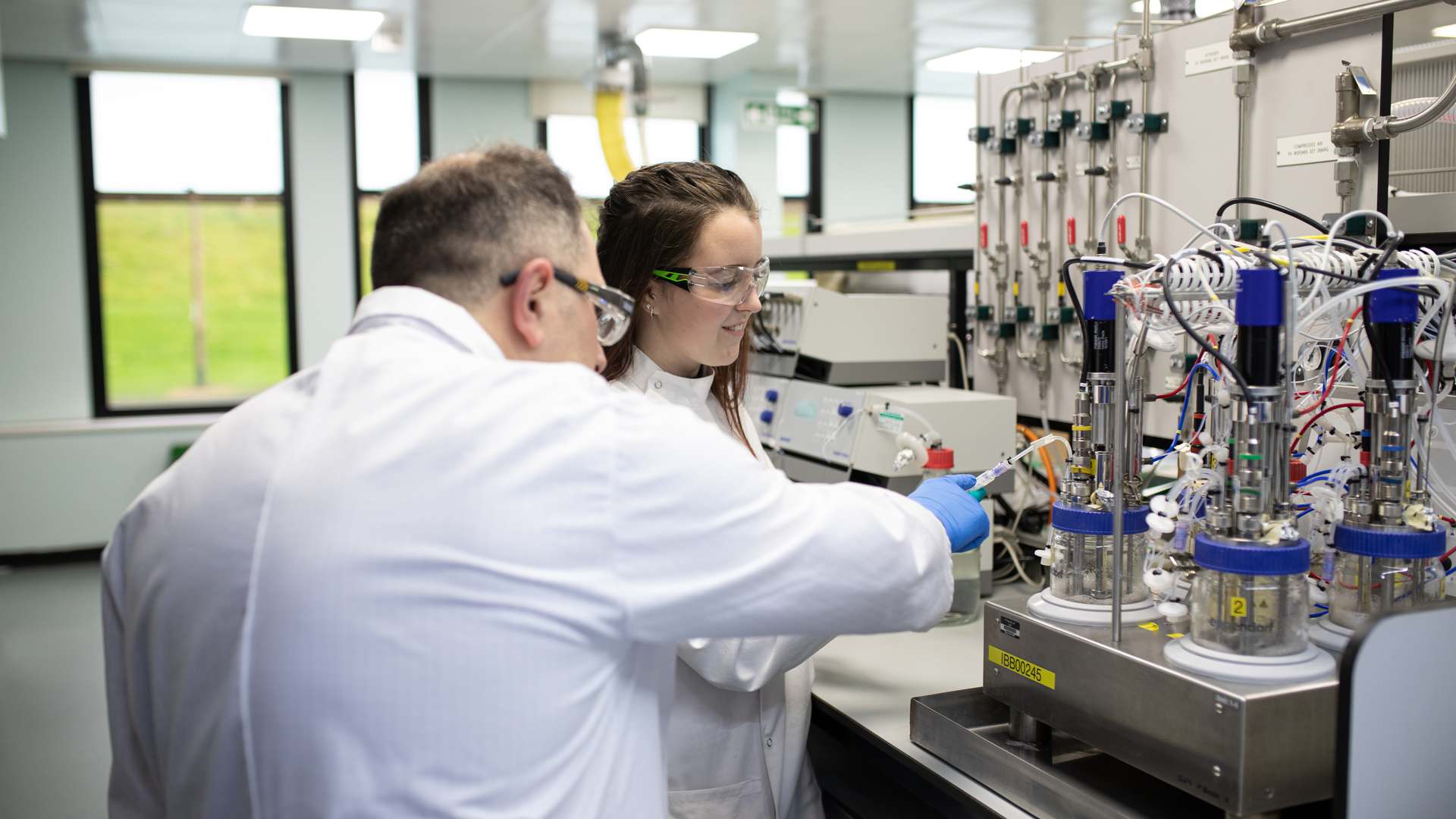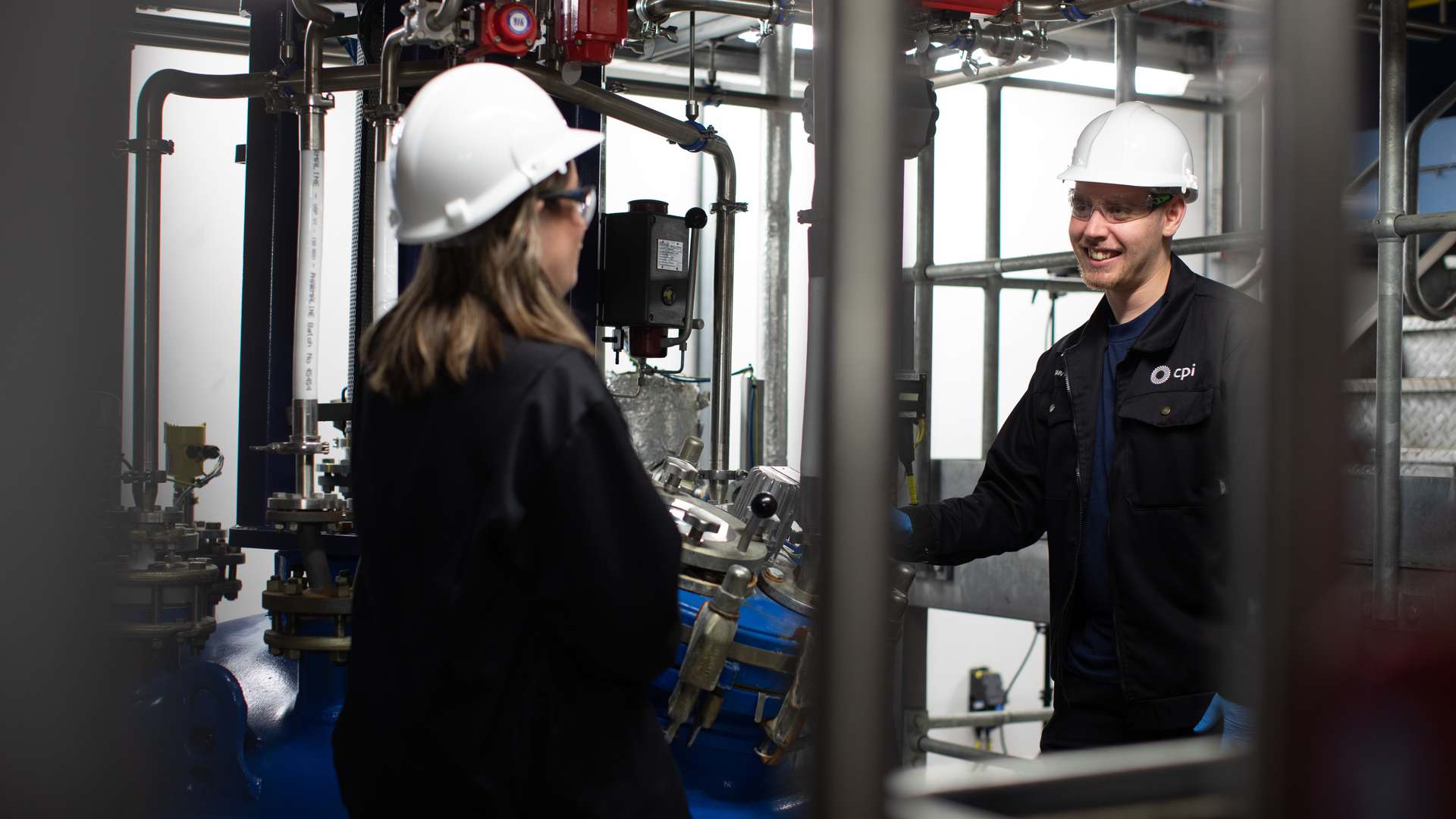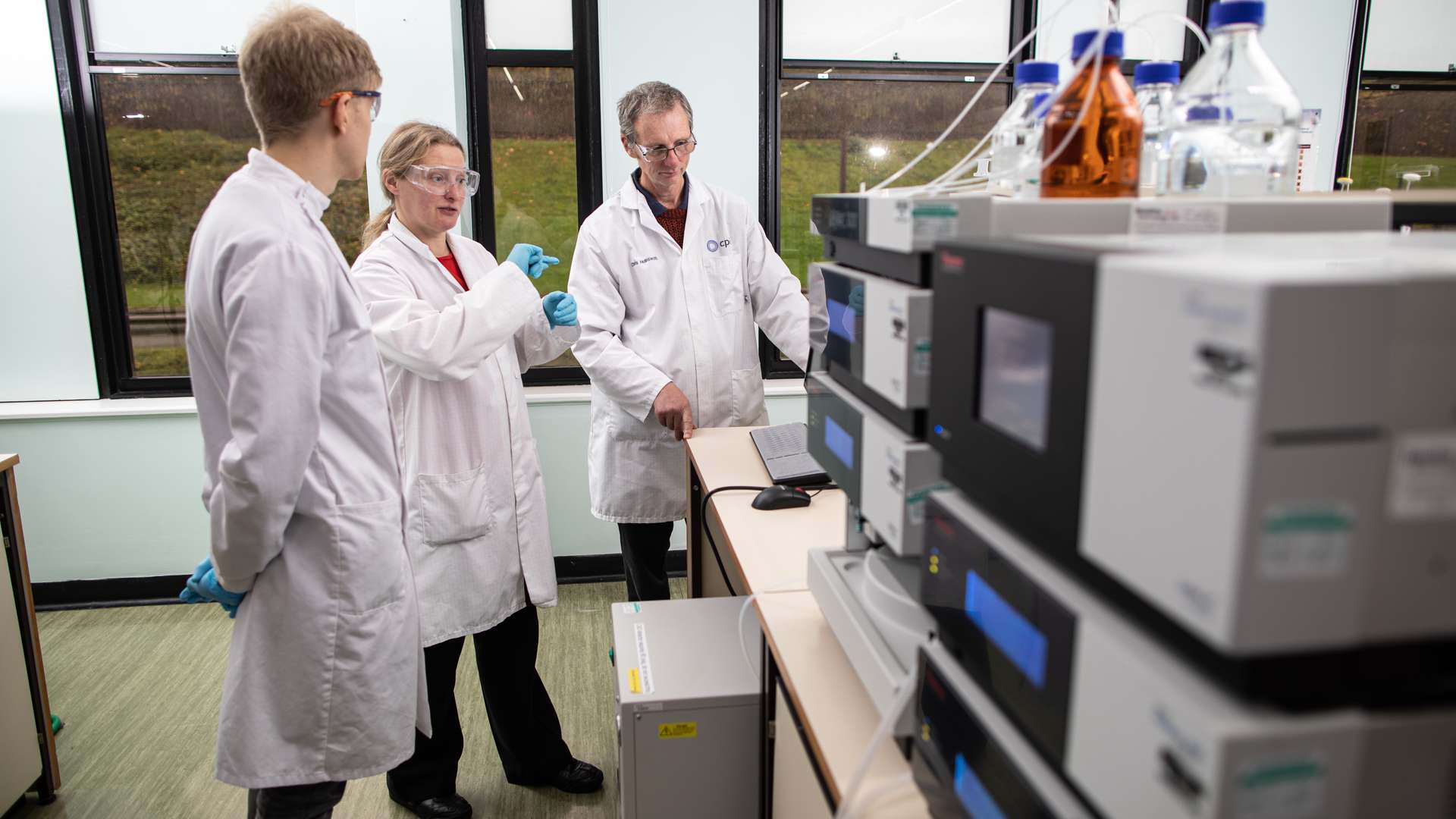Collaborating to drive the future of sustainable biotechnology
Collaboration is central to our culture, enabling us to support the biotechnology industry to deliver sustainable solutions for a cleaner, greener future.

Principal Strategic Programme Manager
(she/her)

Sustainability is imperative in meeting humanity’s growing demand for food, fuel, and materials, without detrimentally impacting the environment.
Emboldened by recent advances in the industrial biotechnology sector, innovators and industry leaders are increasingly turning to bioscience to meet this need.
Now more than ever, biotechnology is healing people with new pharmaceuticals, fuelling nations with energy, and feeding the world with novel foods and animal feed. Biotechnology supports circular supply chains and sustainable innovations by enabling more efficient resource utilisation, minimising waste, and offering bio-based alternatives to new and existing chemicals and materials.
Although industrial biotechnology is largely inherently sustainable as there are many net-zero oriented elements built in – due to the use of bio-based raw materials, low temperatures and ambient pressures – it can still do better.

Driving a more sustainable biotechnology industry
At CPI, we’re leading the charge toward a more sustainable biotechnology industry by ensuring we deliver projects with cost-effective, productive, and environmentally friendly processes and operations.
Biotechnology processes currently use large amounts of water and power to run fermentations. However, we can reduce this environmental impact by recycling water from downstream processes, where possible, and ensuring that we choose the most appropriate equipment to minimise energy usage. To achieve this, we’re aiming to invest in new, more efficient equipment – like air compressors, chillers, and steam generators – that require fewer fossil fuels to power.
When designing new processes and plants, we can check that raw materials come from sustainable sources, make use of waste feedstocks, and shorten process times or implement continuous processing for improved outputs.
Promoting the sustainable development of emerging technologies
Companies now recognise that they can’t do everything alone. So, they seek out technology innovators like CPI because we have a broad range of expertise from different backgrounds to offer input at different stages of the innovation journey.
We’re not only helping companies harness biotechnology to ensure that innovative ideas are developed and scaled effectively, but also sustainably, by identifying opportunities to make processes more resource efficient. Our expertise in biotechnology stretches from product design to process modelling through to commercialisation, and we ensure that processes are well characterised and developed before they’re scaled, for greater efficiency and sustainability.

Shaping the future of sustainable AgriFoodTech
We have a long history of supporting innovation to deliver sustainability benefits for people, places, and our planet. We’re keenly aware of the threat posed by climate change and the environmental impact of our food production system. Addressing such systemic challenges is therefore a key driving force of our work. This is why we’ve partnered with Azotic technologies to help deliver a natural nitrogen fixation technology that provides a solution to the overuse of synthetic fertiliser.
Technologies like biologicals for nitrogen fixation extend the sustainability built into product development by using natural materials for natural processes. Ultimately, this benefits farmers and is a good sustainable practice helping to reduce the environmental footprint of agriculture.
We’re also helping build a sustainable future by enabling the innovative use of carbon dioxide to produce food and animal feed in the form of alternative proteins that can be tailored to the specific needs of different livestock. This has the potential to ensure animals are healthier and reduce emissions from livestock production.
Shaping the future of sustainable materials
Plastic pollution is one of the biggest challenges in the modern era, impacting our health and harming the environment. The US plastics industry is responsible for 232 million tonnes of CO2 equivalent emissions every year, while up to 12 million tonnes of plastic ends up in our oceans annually, threatening sea wildlife and biodiversity. To help address this problem, we collaborated with Oceanium to develop compostable bio-packaging from sustainably farmed seaweed. This will help advance circular life cycle packaging while reducing our reliance on fossil-derived plastics.
We also helped Fiberight, a South Wales-based resource recovery company, to optimise and upscale their proprietary process for generating sustainable added value products from municipal solid waste (MSW). What’s more, the output from this innovative water-based recycling process can be used to generate green energy. With the potential to recover, recycle and repurpose up to 70% of all MSW in the UK, this novel method will further drive a circular bioeconomy, placing the UK at the leading edge of sustainable development.

Collaboration is key
We don’t just collaborate with industry and founders. Our partners also include academia, innovation enablers, investors, and government and policymakers. By working together with key players across the innovation ecosystem, we can build a better collective future.
Following our recent Memorandum of Understanding with the University of Manchester, we will further catalyse the scale-up and commercialisation of deep tech and sustainable manufacturing solutions across a broad range of industries including biotechnology, pharma, energy and advanced materials.
Collaboration is essential in the innovation ecosystem because no one has all the resources and expertise. We build collaborations to help meet technology and innovation needs for more effective and rapid sustainable scale-up and commercialisation. By combining our entrepreneurial mindset and radical thinking as we work with our partners globally, we catalyse the adoption of advanced technologies and manufacturing solutions that deliver the greatest impact.
Enjoyed this article? Keep reading more expert insights...
CPI ensures that great inventions gets the best opportunity to become a successfully marketed product or process. We provide industry-relevant expertise and assets, supporting proof of concept and scale up services for the development of your innovative products and processes.